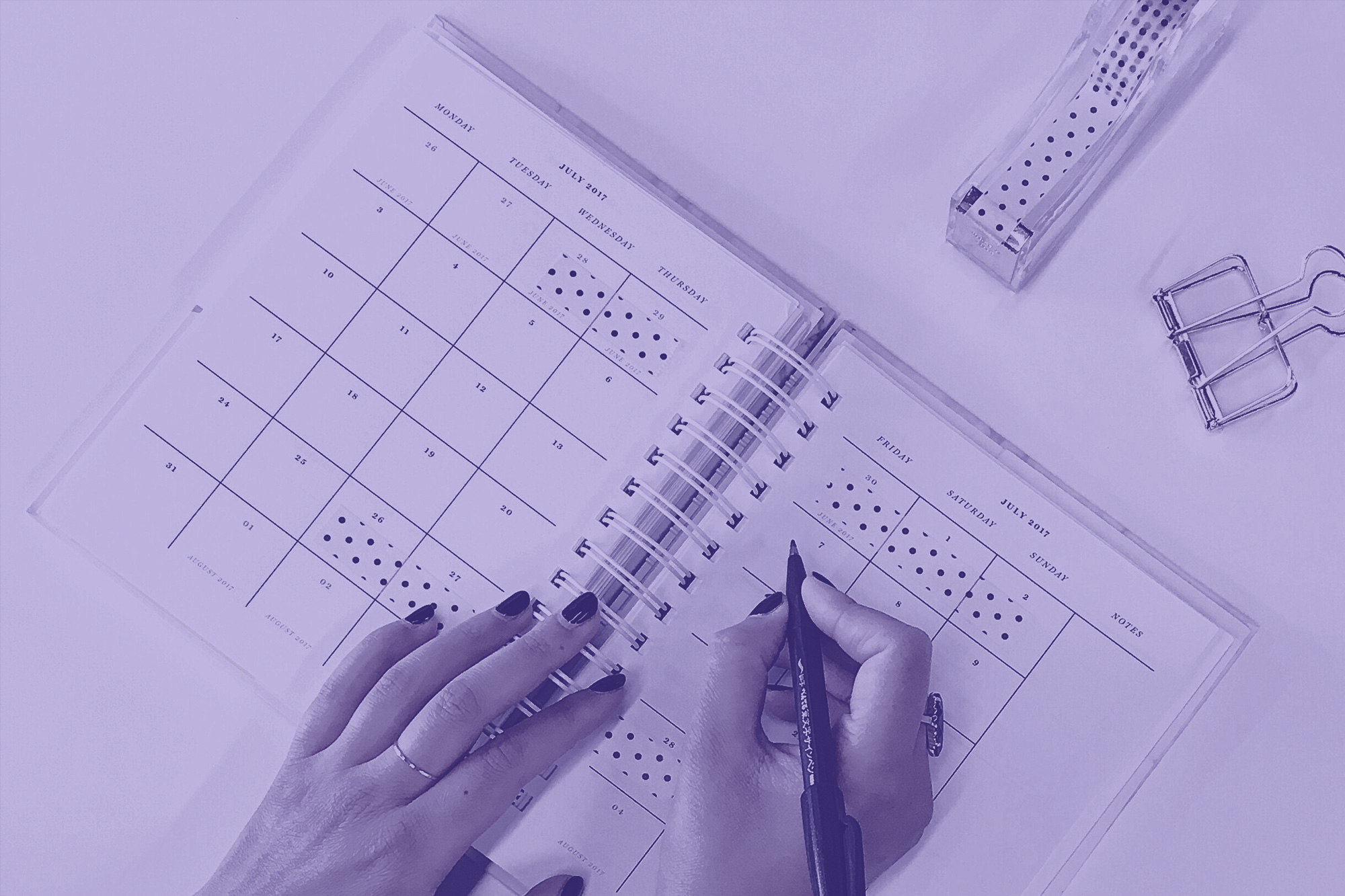En este post vamos a ver cómo usar usually y used to en inglés para que no cometas más errores y los uses de la manera correcta. Aunque a veces nos confunden, con tener un par de cosas claras verás que es sencillo.
Es cierto que podemos utilizar usually y used to para hablar de hábitos y cosas que solemos o solíamos hacer y ahí viene la confusión. También hay otras expresiones como be used to & get used to que podemos usar, aunque de una forma diferente.
No te preocupes vamos a verlos uno por uno, one by one
Usually
es un adverbio de frecuencia, es el que solemos traducir por «suelo» cuando hablamos de cosas de hacemos a menudo, habitualmente. Es importante destacar que si usamos usually, solo lo haremos en presente.
E.g.
I usually go running three times a week.
(suelo ir a correr tres veces por semana o normalmente voy a correr tres veces por semana)
They usually spend their summer holiday in Greece.
(suelen pasar sus vacaciones de verano en Grecia)
Do you usually play video games?
(¿sueles jugar a video juegos? ¿juegas normalmente a video juegos?)
Con los adverbios de frecuencia hay que tener en cuenta la posición en la frase: por norma general, se colocan antes del verbo principal pero después del verbo to be.
E.g.
They usually stop working at six.
(Normalmente dejan de trabajar a las seis, suelen dejar de trabajar a las seis)
We usually go for a walk after lunch.
(Solemos ir a pasear después de comer)
I’m usually very patient.
(Suelo ser muy paciente, normalmente soy muy paciente)
She’s usually late.
(Suele llegar tarde, normalmente llega tarde)
Hemos comentado que para hablar de hábitos y acciones habituales en presente, usamos usually, para hacer lo mismo en pasado, utilizaremos used to, vamos a ver los detalles
Used to
es una estructura verbal, used to + infinitivo, que utilizamos para referirnos a hábitos o acciones y situaciones en el pasado, que solíamos hacer pero ya no. A veces lo traducimos como «solía» aunque puede ser también «antes».
E.g.
I used to play tennis twice a week. (but now I don’t do it)
(Solía jugar al tenis o antes jugaba al tenis dos veces por semana, pero ahora ya no)
She used to smoke a packet of cigarettes a day but she quit.
(Solía fumar o antes fumaba un paquete de cigarillos al día pero lo dejó)
They used to go to the cinema every week.
(Antes iban o solían ir al cine todas las semanas)
We used to play on the street when we were children.
(Solíamos jugar en la calle cuando éramos niños)
Observa que en interrogativo y en negativo la forma correcta es use to – didn’t use to / did you use to?
E.g.
I didn’t use to like pizza, but now I do.
(Antes no me gustaba la pizza, pero ahora sí.)
Food didn’t use to be so expensive.
(La comida no solía ser tan cara.)
We didn’t use to go away on holiday very often when I was young.
(No solíamos ir de vacaciones a menudo cuando era joven.)
Did he use to smoke a lot?
(¿Solía fumar mucho?)
Did you use to live here?
(¿Vivías aquí antes?)
Did they use to go to the beach in the summers?
(¿Solían ir a la playa durante los veranos?)
Ojo! No podemos utilizar use to en el presente, utilizaríamos usually. Éste el el error más común porque al traducir «used to» como «solía» creemos que es correcto utilizarlo también en el presente como «suelo, solemos, suelen» y no es así
![]() I use to play tennis twice a week.
I use to play tennis twice a week.
![]() I usually play tennis twice a week.
I usually play tennis twice a week.
![]() She uses to read five books a month.
She uses to read five books a month.
![]() She usually reads five books a month.
She usually reads five books a month.
![]() They use to visit their parents on Sundays.
They use to visit their parents on Sundays.
![]() They usually visit their parents on Sundays.
They usually visit their parents on Sundays.
Esta es la prinicipal diferencia de uso entre usually y used to. Hemos visto que usually se utiliza en presente y used to en pasado pero hay también otras estructuras como be used to / get used to que es importante saber usar.
Be used to
significa «estar acostumbrado a» cuando nos referimos a situaciones que son comunes o habituales para nosotros. La estructura correcta es be used to something / to doing something, es decir, si usamos un verbo con esta construcción, va en gerundio (-ing).
E.g.
They are used to dealing with children.
(Están acostumbrados a tratar con niños)
He is used to living alone.
(Está acostumbrado a vivir solo)
I’m used to waking up early.
(Estoy acostumbrado a levantarme temprano)
La forma negativa es la del verbo to be
E.g.
I’m not used to drinking alcohol.
(No estoy acostumbrado a beber alcohol)
I’m not used to warm weather.
(No estoy acostumbrado al tiempo cálido)
Podemos utilizar esta estructura en cualquier tiempo verbal
E.g.
She will be used to her new position in no time.
(Se acostumbrará a su nuevo puesto enseguida)
He wasn’t used to drive on the left.
(No estaba acostumbrado a conducir por la izquierda)
Pero cuidado! con confundir I’m used to doing con I used to do
E.g.
I’m used to driving to work.
(Estoy acostumbrado a conducir para ir al trabajo)
I used to drive to work, now I go by train.
(Solía conducir para ir a trabajo, ahora voy en tren)
Get used to
significa «acostumbrarse a», es ligeramente diferente en significado aunque funciona como la estructura anterior, también es posible utilizarla en diferentes tiempos verbales.
E.g.
I’m getting used to dealing with stress.
(Me estoy acostumbrando a manejar el estrés)
They will get used to warm weather soon.
(Se acostumbrarán pronto al tiempo cálido)
She never got used to rainy weather.
(Nunca se acostumbró al tiempo lluvioso)
Bueno, esperamos que después de todo estos ejemplos no cometas más errores con usually y used to y además sepas cómo usar las estructuras be/get used to. A modo resumen y para que quede claro de un vistazo 😉
Usually – se usa en presente para hablar de acciones habituales.
Used to – se usa en pasado para hablar de cosas que solías hacer pero ya no.
Be used to (-ing) – «estar acostumbrado a algo, a hacer algo».
Get used to (-ing) – «acostumbrarse a algo, a hacer algo».
E.g.
I usually get up early.
(Suelo levantarme temprano)
I used to get up early.
(Solía levantarme temprano)
I’m used to getting up early.
(Estoy acostumbrado a levantarme temprano)
I will never get used to getting up early.
(Nunca me acostumbraré a levantarme temprano)
Para que te acostumbres, so that you get used to it, te ponemos a prueba con este ejercicio
I ______ work in a bank, but I changed my career and now I’m an architect.
We ______ go to the cinema.
We ______ eating out every Saturday.
I’m ______ getting up early. I’ve been doing it for 30 years.
I’m ______ having dinner at 6. In my country, we eat later.
Do you ______ go to the pub after work?
My father ______ tell us stories when we were in bed.
I ______ go swimming every day.
VER RESPUESTAS CORRECTAS
I USED TO work in a bank, but I changed my career and now I’m an architect.
We USUALLY go to the cinema.
We ARE USED TO eating out every Saturday.
I’m USED TO getting up early. I’ve been doing it for 30 years.
I’m NOT USED TO having dinner at 6. In my country, we eat later.
Do you USUALLY go to the pub after work?
My father USED TO tell us stories when we were in bed.
I USUALLY go swimming every day.




Hey,
such an instructive post.
Now I have to get used to using all these different forms of use 😉
Is this a correct phrase?
Gracias!!
It’s a perfect use in this sentence! well done! and thanks for your comment